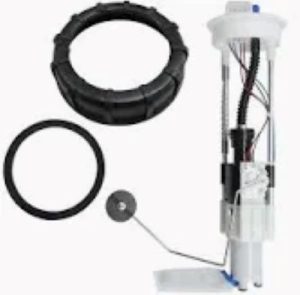The fuel pump plays a very important role in the pumping of fuel to the engine with the required pressure and quantity; therefore, a failed fuel pump would definitely severely worsen the performance of the engine in general. Most gasoline engines need 35 to 65 PSI fuel pressures to keep their combustion cycle at proper efficiency. As soon as these ranges of pressure cannot be achieved by the fuel pump, the air-fuel mixture becomes disrupted, hence leading to inefficient combustion or higher power loss with slow acceleration. Low fuel pressure, especially under load, can cause engine knock or pre-ignition in high-performance or turbocharged engines, which often require even higher fuel flow. These eventually lead to long-term damage.
The fuel economy of a weak fuel pump is also affected. Inadequate delivery of fuel forces the engine's control module to compensate by increasing the injector pulse; the effect that follows is an increase in fuel consumption by the engine while it struggles to maintain performance. This sometimes has consequences in increased fuel costs after some time, up to 15%. Bosch is among the leading companies when it comes to automotive fuel technology. According to Bosch, even as low as a 10% loss of pressure bears great consequences for the fuel economy and emissivity; it is very important, therefore, that the pressure level should be consistent.

Symptoms of poor performance due to a weak fuel pump include rough idling, hard starting, and frequent stalling. This is because the pump cannot provide the exact volume of fuel the engine requires, especially under high-load conditions such as highway driving or climbing hills. Car expert Scotty Kilmer goes further to say, "A fuel pump on its last leg makes the engine struggle," showing just how vital it is to overall performance.
To add insult to injury, running on fumes can make matters worse because the pump has to work harder in a near-empty tank and often overheats and wears prematurely. Upscale Fuel Pump models are able to handle minor voltage swings and therefore supply more consistent fuel, further assuring overall engine performance-even under severe conditions.
Regular maintenance, such as monitoring fuel pressure and replacing the fuel pump when signs of weakness begin to show, will prevent performance issues and continue to allow the operation of the engine efficiently. Proper maintenance with respect to the fuel pump increases its lifespan, and that is not all-the engine will definitely be fed with enough flow of fuel to operate it at an optimum level.